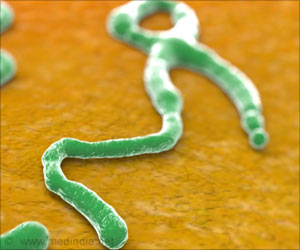US President George W. Bush will discover one of Africa's most powerful weapons in the fight against malaria: a mosquito net treated with an insecticide that stays potent for five
US President George W. Bush will discover one of Africa's most powerful weapons in the fight against malaria: a mosquito net treated with an insecticide that stays potent for five years.
Bush is due to visit a factory in Tanzania producing the nets, A to Z Textile Mills, on Monday, as part of his Africa tour to highlight efforts to improve health on the continent.Called the Nguvu ya Ajabu (Magic Power) Olyset net, the innovation was launched in 2004 in the Arusha factory which is now churning out 10 million of these bug barriers every year, sold throughout 25 African countries.
Made from a synthetic weave that is impregnated with the insecticide permethrin, the net is the result of a partnership between the Tanzanian factory and the Japanese chemical giant Sumitomo Chemicals.
A to Z Textile Mills is the only factory in Africa to produce the life-saving nets that repel mosquitos carrying the parasite that causes the disease.
Malaria remains the number one cause of death among children under five in Africa. The UN World Health Organisation estimates that 1.2 million people die of the disease every year, mostly children.
The Geneva-based Global Fund to fight AIDS, Tuberculosis and Malaria in November hailed "spectacular" progress in fighting malaria, as the number of bed nets to protect against mosquitoes available rose by 155 percent.
Advertisement
The nets are sold through the WHO, the UN children's agency UNICEF, the UN High Commissioner for Refugees and non-governmental organisations active in the fight against malaria.
The success of the net has led to expansion, with A to Z Textile Mills opening a second factory in 2006 in Kosongo, some 18 kilometres (12 miles) from Arusha. The operation now employes 4,700 people, most of them women.
"The Olyset model produces a vital public health product and simultaneously boosts economic development in Africa," Tanzanian Vice President Ali Mohamed Shein said of the nets at the official inauguration of the factory last week.
Factory director Kaplesh Shah said the chemically-treated net was cheaper than conventional those developed in the 1980s, which have to be soaked every four to six months to be effective.
"Our main clients are UN organisations or NGOs. We are trying to attract the private sector but it's not easy," said Shah.
While the Tanzanian government was supporting his factory, he said production had been hampered by the many power cuts in the region. Distribution of his product has also been difficult.
Source-AFP
SRM/M









